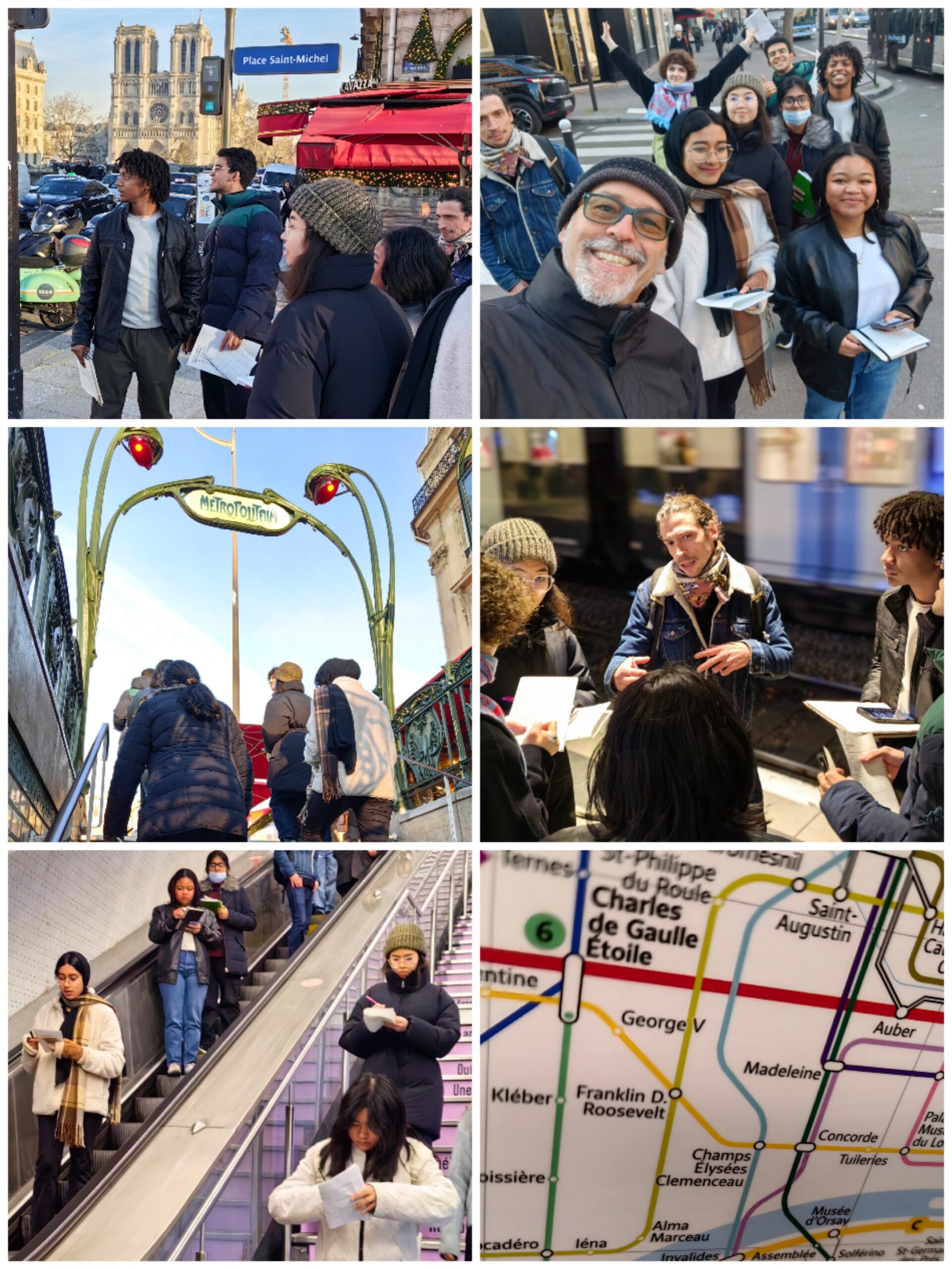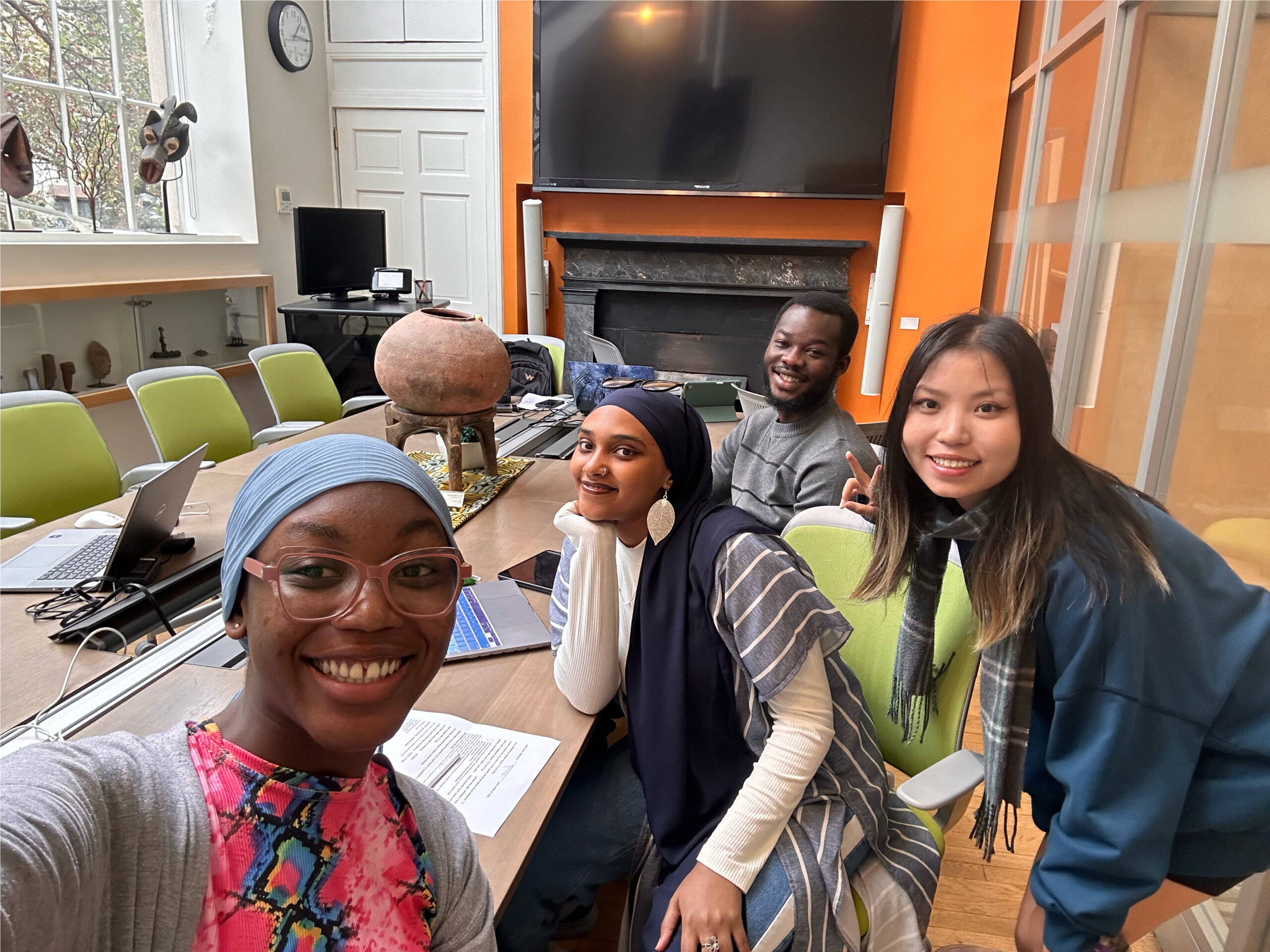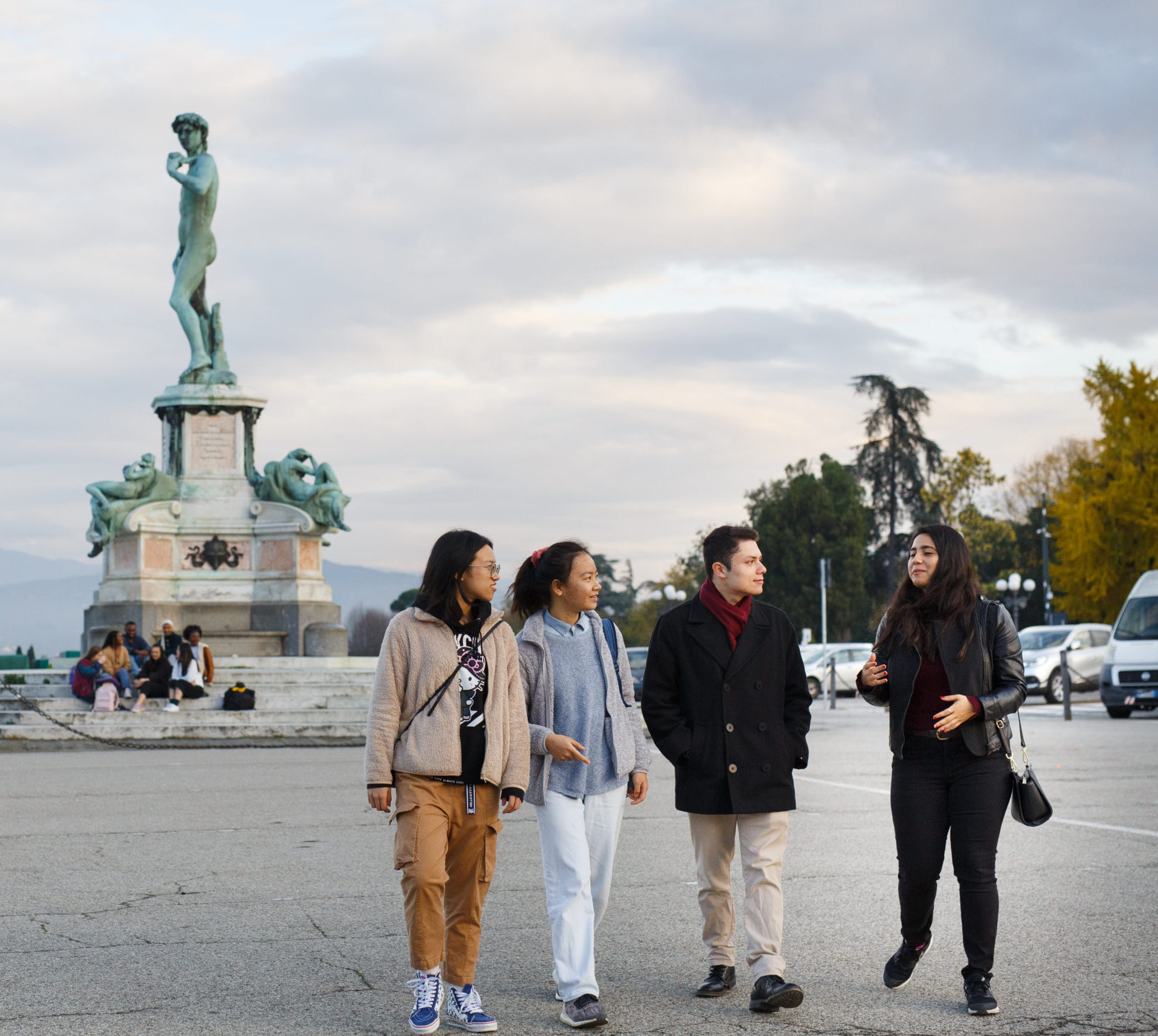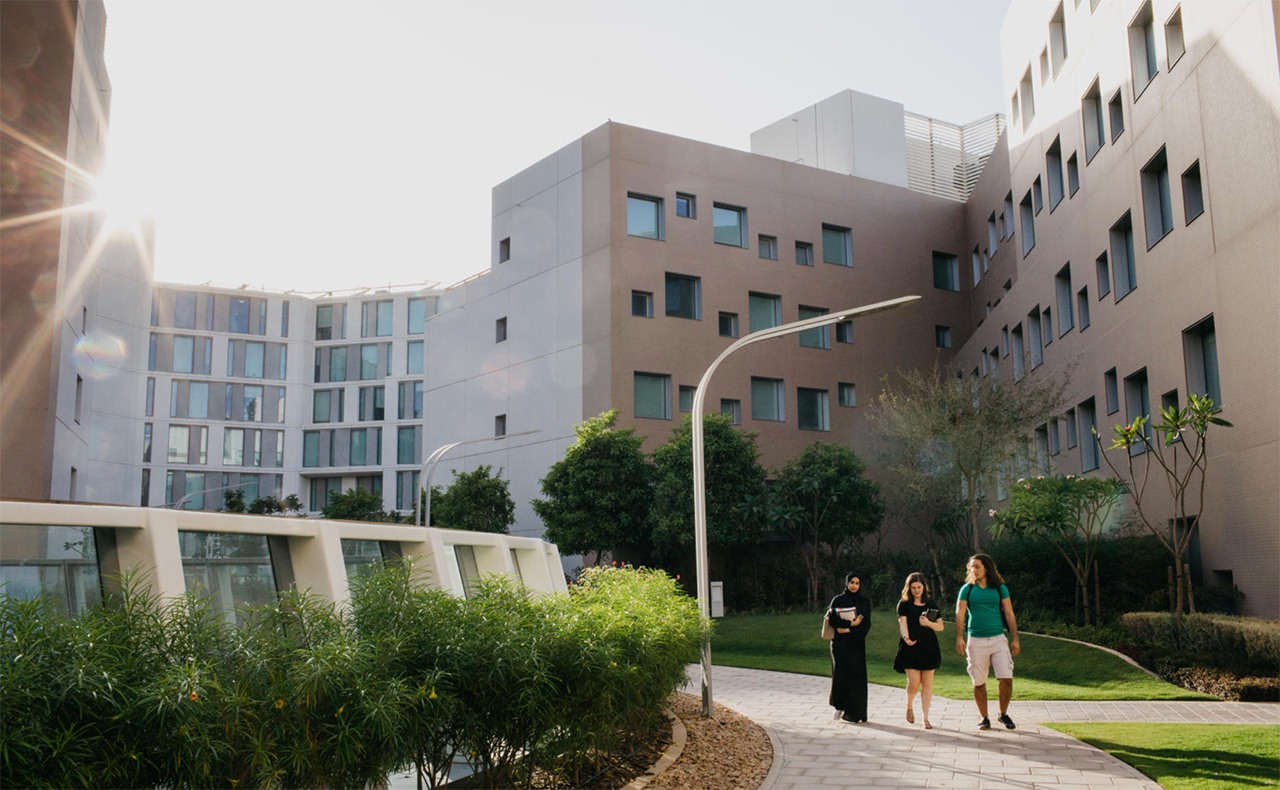Published May 19, 2025
During Abu Dhabi J Term, NYU Students Embark on Immersive Global Adventures: Part Two
For 10 days each January and May, NYU Abu Dhabi students embark on globe-spanning journeys. This period is called January Term or J Term, a shortened semester where students earn academic credit while engaging in location-based, experiential learning. In 2025, students enrolled in Abu Dhabi J Term will travel to 32 countries for 105 unique courses. Faculty members will guide them as they deep dive into a site, exploring topics like its history, culture, and natural environment.
NYU Abu Dhabi students must complete at least two J Term courses as undergraduates. However, many opt to enroll in more to take advantage of the exceptional learning opportunities—and global adventures—available. Read on to discover three recent Abu Dhabi J Term courses. And check out Part One to explore even more!

Wayfinding in Paris
In Professor Goffredo Puccetti’s Abu Dhabi J Term course Wayfinding: Graphic Design in the Built Environment students traveled to Paris to study wayfinding—the use of design elements to assist in navigating a space. The course explored the fundamental design components of wayfinding. It also examined the cultural implications of how wayfinding helps us navigate the world. “The relevance of graphic design in urban space always comes as a sort of revelation,” says Puccetti. “It’s crucial that we understand how much of our lives depend on it.”
Paris is home to many wayfinding experts, which inspired Puccetti to host the class there. “Students not only wandered in the Paris Métro analyzing the signage systems, they did so escorted by the actual designers of the system!” he says.
“That we were able to learn from experts in the field is mind-blowing,” shares Amina Magomedova, an NYU Abu Dhabi first year. “What do you mean I am taking a train ride with someone who designed the Paris Métro map while he is telling me about the color coding of each line?”
During one memorable class, Puccetti challenged students to travel from the NYU Paris campus to the Versailles Château Rive Gauche railway station and back using public transportation with no navigational assistance from their phones. Students’ ability to successfully traverse the city relying solely on wayfinding tools amazed them.
“I would never have expected to learn so much in just 1o days,” says Amina. “It was my first time in Paris, yet now I can orient myself in the city without a mobile phone.”

Sensing Sensitive Archives in Berlin
Professor Andreas Valentin’s family history inspired his Abu Dhabi J Term course Sensing (Sensitive) Archives. The course, which took place in Berlin, explored how archives function as sanctuaries for memories and narratives while revealing issues like intolerance, exile, and migration.
Professor Valentin’s family left Germany before World War II due to Nazi persecution, rebuilding their lives in Brazil. His grandfather collected and passed down an extensive library of family documents and photos. Valentin started researching and digitizing this archive 15 years ago, and in 2023, the Jewish Museum Berlin began exhibiting the objects. “I thought my family’s archive would be an interesting starting point for a course that addresses archives and memorials related to the Holocaust and the city of Berlin,” Valentin says.
Throughout the course, students visited a commemorative Stolperstein erected for Valentin’s great uncle and examined the Valentin family archive in the Jewish Museum. They visited the Holocaust Memorial, the Berlin Wall Memorial, and related sites. They also received a guided tour from a contemporary artist who works with photography archives.
“The biggest takeaway from this course is that archives aren’t just old documents stored away somewhere. They actively shape how history is remembered, understood, and even forgotten,” says NYU Abu Dhabi first-year student Ansh Kumar Singh. “Visiting places like the Jewish Museum and the Berlin Wall Memorial made me realize that history isn’t just about facts. It’s about whose stories are preserved and how they are told.”

Just Cash in Rwanda
For two weeks in January, a group of NYU Abu Dhabi students led by faculty member Juliana Bidadanure, traveled to Rwanda. There, they learned about direct cash transfer payments as a potential solution to poverty and growing inequality. A direct cash transfer payment is given by a government or nonprofit directly to an individual. “This class will take students on a global, interdisciplinary study of unconditional cash, covering the international aid revolution,” the syllabus reads.
“We were lucky to spend three days with GiveDirectly Rwanda, the organization that provides unconditional cash transfer programs,” says Professor Bidadanure. She has worked on universal basic income for over 10 years. “We then traveled to Musanze to spend time with cash transfer recipients and ask about their experience. Finally, we met a government official working in social protection who helped us understand Rwanda’s overall vision and how GiveDirectly fits into it.”
“My experience was a truly transformative one,” says senior Hasibur Rahman. He has taken three J Term courses while at NYUAD. “The field excursion to Mahama Refugee Camp was an unforgettable and deeply moving experience. Despite the trauma and loss so many there had endured, they had this incredible energy and vision for the future. It was humbling and inspiring and made our course’s central themes of dignity, choice, and empowerment urgent and real.”



